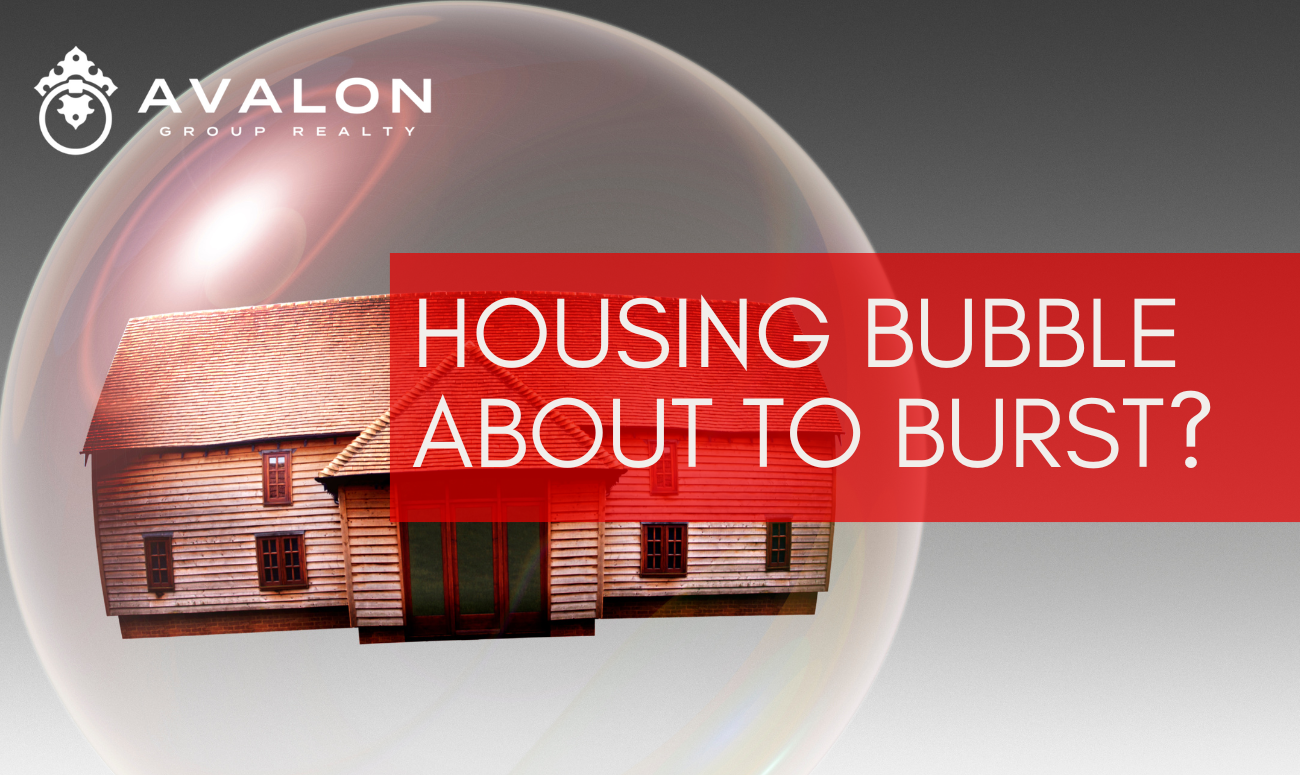Housing Bubble About to Burst? Bubble or Normalization? A St. Petersburg Realtor’s Perspective
As a seasoned realtor with Avalon Group Realty in St. Petersburg, Florida, I’ve been closely monitoring the evolving dynamics of the Southern housing market. Recent analyses suggesting a potential bubble in this region have sparked intense discussions among industry professionals. Today, I’d like to share my insights on this complex situation, drawing from both national trends and our local experiences here in St. Petersburg.
Housing Bubble About to Burst? The COVID-19 Catalyst
To begin with, it’s crucial to understand the context that led to our current situation. During the pandemic, the Southern states experienced a significant influx of new residents. This migration was fueled by several factors, including:
- The shift to remote work
- Desire for more space
- Relatively lower housing costs compared to other regions
In response to this surge in demand, home builders in the South ramped up construction efforts. However, as we transition into a post-pandemic era, we’re witnessing a gradual slowdown in this migration trend, which is naturally impacting housing demand.
Supply Surge: Cause for Concern?
One of the most striking statistics comes from Nick Gerli, CEO of Reventure Consulting. He points out that the number of new homes for sale in the Southern Region has reached an all-time high of nearly 300,000. This figure surpasses even the peak levels seen before the 2008 housing crash, raising concerns about a potential bubble.
However, it’s essential to approach these numbers with nuance. As Aaron Hunt, Broker of Avalon Group Realty in St. Petersburg, notes, “While we’re certainly seeing an increase in inventory, it’s important to remember that our market fundamentals are vastly different from those preceding the 2008 crash. Homeowners today have significantly more equity, and lending standards are much stricter.”
Market Normalization vs. Bubble
Despite the alarming headlines, many housing economists suggest that what we’re experiencing might be more accurately described as a market normalization rather than an impending crash. Danielle Hale, chief economist at Realtor.com, points out that southern markets like Austin and San Antonio now have more homes for sale than before the pandemic, indicating greater availability.
This increased supply is indeed affecting pricing in some areas. For instance, Austin has seen a 3% decrease in median listing prices compared to last year. Nevertheless, this doesn’t necessarily signal a bubble about to burst.
Housing Bubble About to Burst? The Southern Advantage
Interestingly, the South’s increased housing supply could be viewed as a strength rather than a weakness. As Hale explains, “The U.S. still needed to build enough homes, and the South has done a better job than other parts of the country in supplying new homes to the market.”
Furthermore, the relative affordability of Southern housing markets continues to attract households from other regions. This ongoing influx of new residents could help absorb the increased inventory over time.
Local Insights from St. Petersburg
Here in St. Petersburg, we’re seeing our own unique trends. Pam Amante, a fellow realtor at Avalon Group Realty, shares her observations: “While we’ve definitely noticed an increase in available homes, we’re also seeing sustained interest from buyers, particularly those relocating from more expensive markets. The key is pricing homes correctly for our current market conditions.”
Moreover, Aaron Hunt adds an encouraging note: “Since the 4th of July, Avalon Group Realty has experienced an uptick in buyers looking at homes and making offers. We have had an accepted offer two consecutive days.” This recent activity suggests that buyer interest remains robust in our local market.
Equity: A Critical Difference
One crucial factor distinguishing the current situation from the 2008 crash is the substantial equity homeowners now possess. This is particularly true in certain parts of the South. As Hale points out, “Historically, Florida, for example, has a high share of homeowners that own their home outright.”
This equity serves as a buffer, making it less likely that we’ll see the kind of dramatic price declines that led to widespread foreclosures in the mid-2000s.
Regional Variations
It’s worth noting that the housing market dynamics vary significantly across different regions of the U.S. While the South is experiencing increased inventory levels, other areas like the Northeast and Midwest are seeing different trends. According to Gerli, these regions have lower levels of home building and speculative inventory activity, potentially insulating them from major corrections in the near term.
Housing Bubble About to Burst? Emerging Trends in the Southern Housing Market
As we delve deeper into the nuances of the Southern housing market, several emerging trends warrant our attention. These factors are shaping the landscape for both buyers and sellers in our region.
The Rise of Build-to-Rent Communities
One of the most significant developments in recent years has been the proliferation of build-to-rent (BTR) communities. These purpose-built neighborhoods of single-family homes or townhouses designed specifically for renting have gained traction across the South.
“We’re seeing a growing number of investors and developers focusing on BTR projects,” explains Aaron Hunt. “These communities offer renters the space and amenities of a single-family home without the long-term commitment of ownership. It’s an interesting middle ground that’s reshaping our market.”
This trend could potentially impact the supply and demand dynamics of traditional for-sale housing, adding another layer of complexity to our market analysis.
Technology’s Growing Influence on Real Estate
The integration of technology in real estate transactions has accelerated dramatically, partly due to the pandemic. Virtual tours, 3D walkthroughs, and even blockchain-based transactions are becoming increasingly common.
Pam Amante notes, “We’ve had to adapt quickly to meet the needs of tech-savvy clients. Many buyers now expect to be able to view properties remotely before deciding to visit in person. This shift has expanded our potential buyer pool beyond local boundaries.”
The Impact of Remote Work on Housing Preferences
While the initial wave of pandemic-driven relocations has slowed, the lasting effects of remote work continue to shape housing preferences in the South.
“We’re still seeing buyers who are relocating from other parts of the country, drawn by our lifestyle and lower cost of living,” Amante shares. “But now, many are looking for homes that can accommodate dedicated office spaces or even separate guest houses that can serve as work areas.”
This shift in preferences is influencing both new construction designs and the types of existing homes that are in highest demand.
Multigenerational Living on the Rise
Another trend we’re observing is an increase in demand for homes that can accommodate multigenerational living arrangements. This is driven by a combination of factors, including cultural preferences, aging parents, and adult children staying home longer due to economic considerations.
Hunt notes, “We’re seeing more requests for properties with in-law suites or the potential for adding an accessory dwelling unit. This trend is reshaping how we think about ideal family homes in our market.”
Housing Bubble About to Burst? Conclusion: Adapting to a Dynamic Market
As these trends illustrate, the Southern housing market is far from static. While concerns about a potential bubble persist, it’s clear that numerous factors are at play, creating both challenges and opportunities.
For realtors and clients alike, staying informed about these evolving trends is crucial. By understanding the broader context of our market, we can make more informed decisions and better navigate the complexities of buying or selling a home in the South.
As always, local expertise remains invaluable in interpreting how these national and regional trends manifest in specific communities like St. Petersburg. At Avalon Group Realty, we’re committed to providing our clients with the most up-to-date insights and personalized guidance to help them achieve their real estate goals in this dynamic market.
Looking Ahead: Caution, Not Panic
In conclusion, while the Southern housing market is undoubtedly in a period of transition, it’s premature to declare a bubble on the verge of bursting. Instead, we may be witnessing a necessary market adjustment following the unprecedented conditions of the pandemic years.
As realtors, our role is to help clients navigate these changing waters with informed, level-headed guidance. We must stay attuned to local market conditions, price homes realistically, and help buyers understand the long-term value proposition of homeownership in our region.
The coming months will be crucial in determining the trajectory of the Southern housing market. Factors such as interest rates, economic conditions, and continued migration patterns will all play significant roles. As always, potential buyers and sellers should consult with experienced local realtors to make informed decisions based on their specific circumstances and goals.
While challenges certainly exist, the fundamental attractiveness of Southern markets like St. Petersburg – with our beautiful weather, vibrant communities, and relative affordability – remains strong. By staying informed and adaptable, we can help our clients successfully navigate this evolving market landscape.
If you are looking for a Realtor in St Petersburg FL visit https://avalongrouptampabay.com/




